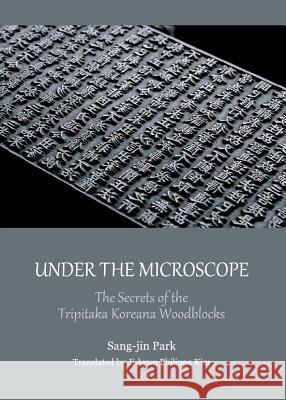Under the Microscope: The Secrets of the Tripitaka Koreana Woodblocks » książka
Under the Microscope: The Secrets of the Tripitaka Koreana Woodblocks
ISBN-13: 9781443846080 / Angielski / Twarda / 2013 / 175 str.
This volume presents a wood anatomist's study of the Tripitaka Koreana, the world's oldest surviving printing artifact from 13th-century Korea. Whereas existing research on this most comprehensive and accurate version of the Buddhist canon in East Asia has relied primarily on incomplete textual evidence and on less than reliable oral traditions in addressing the secrets of the creation, birthplace, material, and miraculous conservation of the Tripitaka Koreana, the author of this volume looks to physical evidence - the woodblocks themselves - for answers. The 81,258 printing plates reveal a wealth of information under the microscope of a wood anatomist: the microscopic picture that emerges helps identify the particular wood species, leading us to their natural habitat, and in turn to the likely logging and engraving sites. These findings challenge the so-called facts about the woodblocks, and offer valuable insights into the day-to-day creation process, from the preparation to the engraving phase, as well as post-production care for optimal preservation. Its value as a Buddhist text aside, the Tripitaka Koreana is an avatar of old Korean science that compels us to go one step further than reading between the lines; that is, to look beneath the engraved letters for clues left behind by nature, man, and time.











